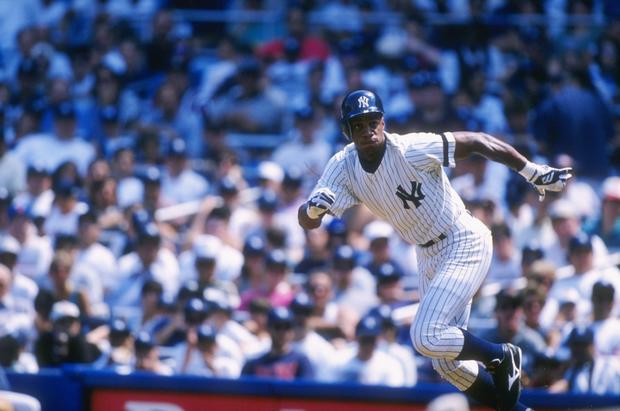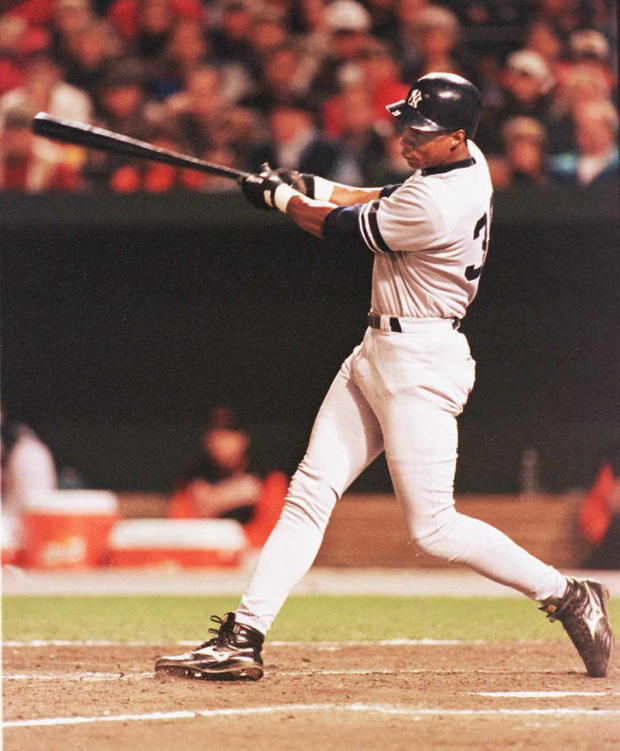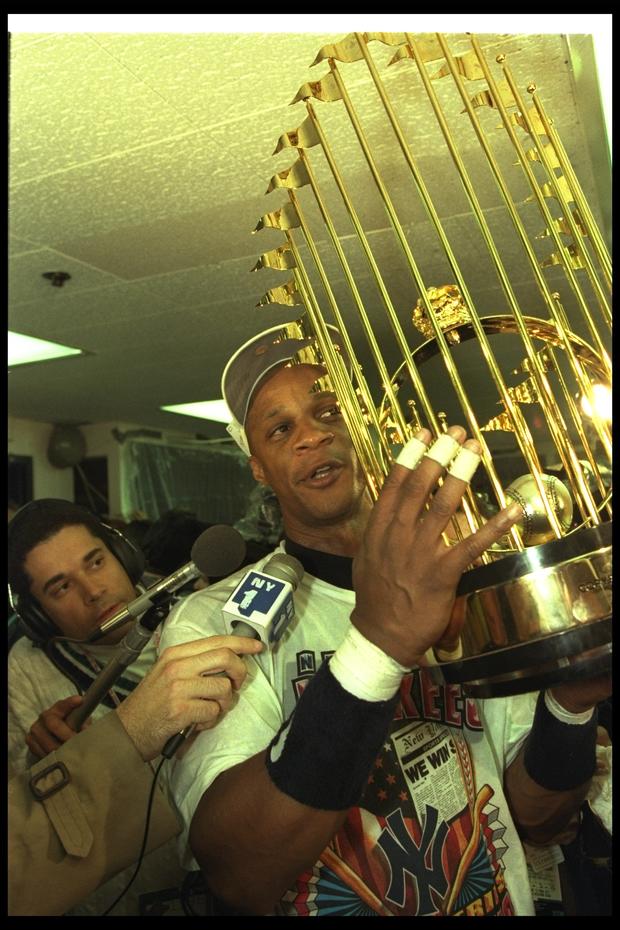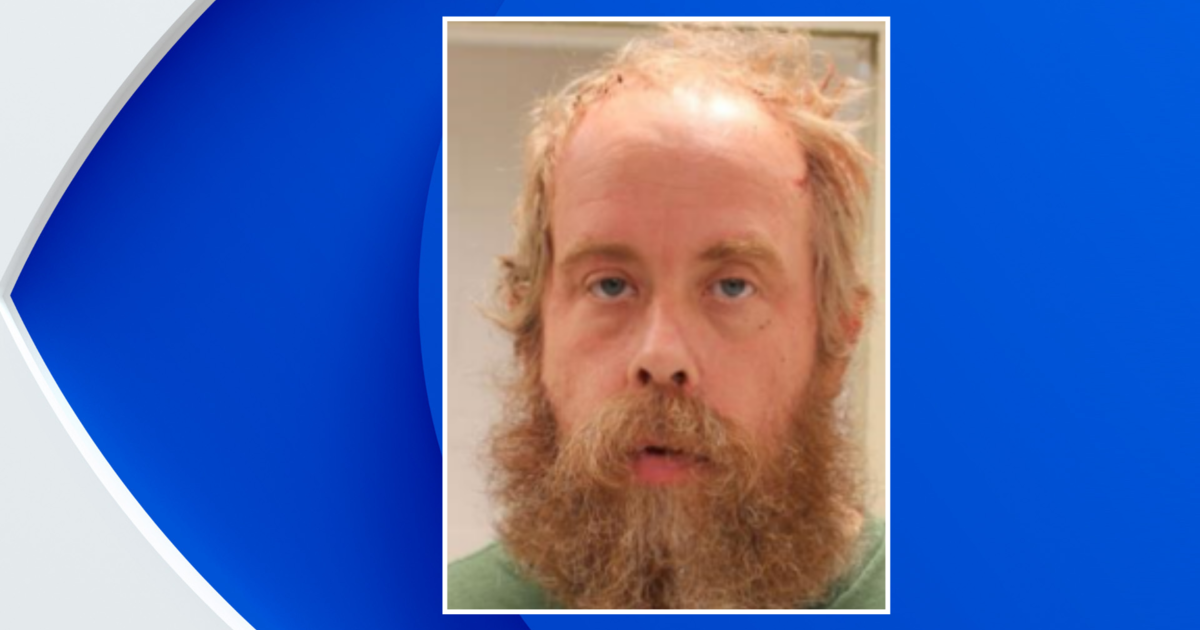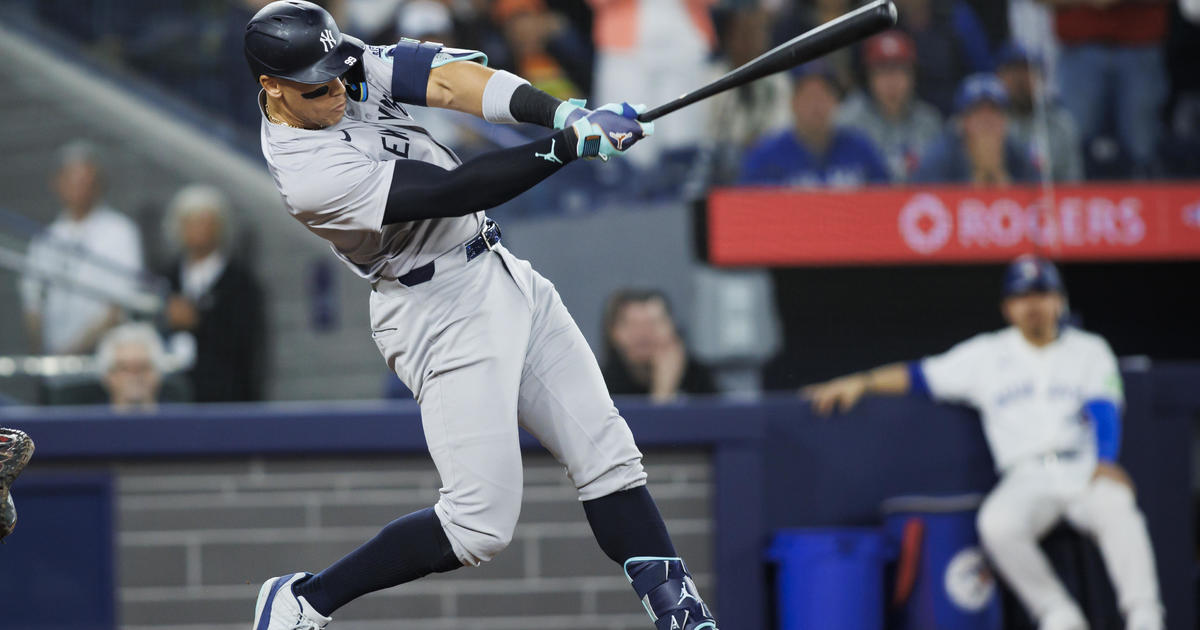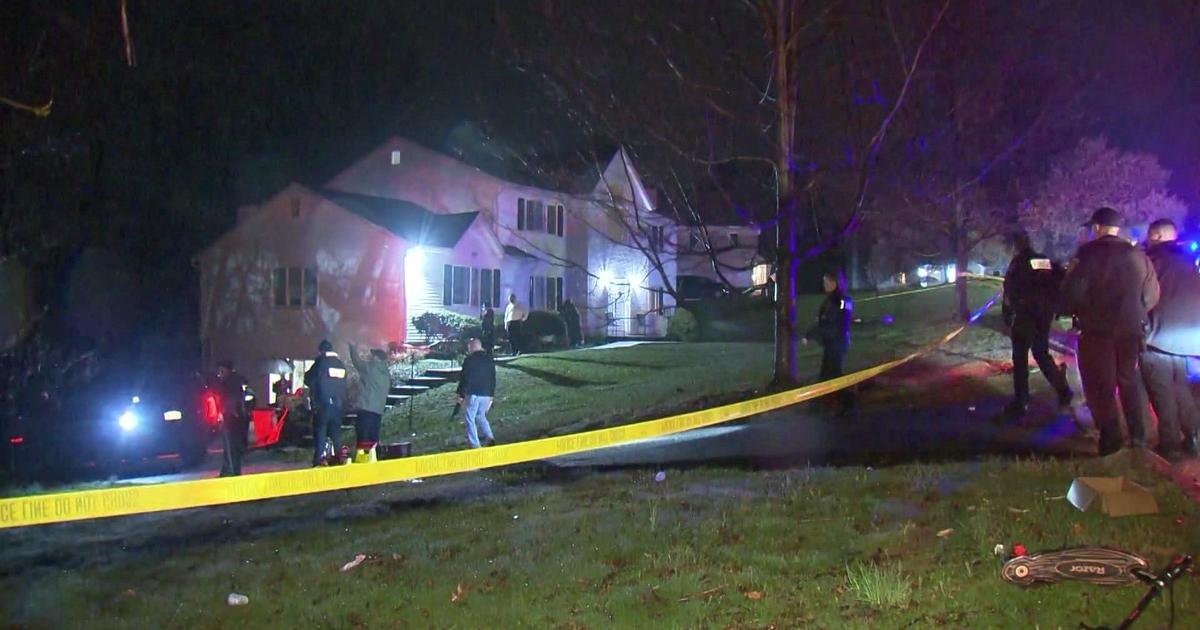Remembering The 1996 Yankees: Winning Defined Darryl Strawberry
By Jason Keidel
» More Columns
When Doc Gooden hurled a no-hitter on May 14, 1996, it fueled the assertion that -- with all due respect to F Scott Fitzgerald -- there indeed are second acts in American life.
But we should first consider Gooden's equally talented and similarly tormented predecessor from the epic Mets of the 1980s and Yanks of the '90s. Before Gooden got his cinematic shot at redemption, Darryl Strawberry paved the way for a Big Apple redux.
Unless you were alive and lucid 30 years ago, it's impossible to properly convey the impact both had on the Mets and our metropolis. Just as spellbinding as Gooden's rising fastball was Strawberry's effortless play, his galloping strides in the outfield, and the liquid perfection of his swing, which turned otherwise perfect pitches into biblical home runs.
Of course, the decade didn't end as splendidly as it began. And just as Gooden had the twin burdens of burnishing his game and his name, so it was with Strawberry.
GALLERY: Darryl Strawberry's 1996 Season
And just as a Yankee insider plucked Gooden from the bowels of his career, the same man brought Strawberry back from his self-induced purgatory.
Think of Ray Negron as the utility infielder of the Yankees beyond the diamond. Within the walls of any large company, there is always a need someone to fill the space between job functions. How many executives will co-host a radio show with Gooden to update his hybrid rehabilitation. Likewise, who would carry Gooden to 12-Step meetings in the jungle heat of Florida. Those peculiar but vital functions befall Negron.
"Darryl had been suspended in 1995," Negron said. "I thought he would be a good Yankee, a bat off the bench. I called (sportswriter) Bob Klapish, who had a relationship with Darryl, and he put me in touch."
Indeed, Strawberry was suspended for 60 days by Major League Baseball in February, 1995, then was released by the San Francisco Giants. This followed another suspension and release by the Los Angeles Dodgers the year before.
Negron said Strawberry beamed at the idea of playing in pinstripes.
"Darryl was into it," he said. "So I called George, and he said he'd love to have Darryl Strawberry, and then I contracted Bill Goodstein and told him he needs to represent Darryl, because he had a falling out with his agent at the time. So Bill put a contract together."
STRAW LOVES NEW YORK
While Strawberry bloomed into a vital cog in the '90s machine, that was not the grand design at the time.
"In George's mind, it was just a one-year deal," Negron said. "Just for 1995. A left-handed bat off the bench who would scare the pitcher just on his name."
It made fiscal and roster sense for the Bombers.
"It wasn't going to cost the club anything," Negron said. "And he was being drug tested three times a week by MLB. Every Monday, Wednesday, and Friday."
"I thought I was in the right situation," Strawberry told me recently. "But Buck Showalter had his team set, and I wasn't in his plans. I just wanted to be part of the team, even though I didn't have a role."
Strawberry said he never worried about his reception from the public.
"Fans never gave up on me," he said. "Especially New York fans. They've always embraced me. They hoped I turned the corner, as a person. They adored the baseball player but also as a man. One thing about the fans, they knew we have problems but they welcomed me back. New York is different from any other place in that regard."
So Darryl left the Yankees' payroll, but not their peripheral vision.
"After the '95 season, Darryl went to Puerto Rico to play," Negron said. "Then he went to Minneapolis to play. So then Darryl started hitting all these home runs up there."
Strawberry was in Minnesota at the beginning of the 1996 season, playing for the independent St. Paul Saints. Word began to leak out of his epic home runs, and thus the Yankee antennae rung.
Naturally, Negron kicked it upstairs to the Boss.
"George, again, was looking for a power bat. Every time we asked around the league, someone would ask for a member of the 'Core Four' and we couldn't make a trade," Negron said.
So Steinbrenner sent two emissaries to Minnesota to get a handle on Strawberry -- Gene Michael and Negron. Michael was micro and Negron was macro.
"Stick went to look at his baseball ability, and I went over there to gauge his ability to stay clean," Negron said.
Upon his return, Negron thought either the Boss lost interest or pinned someone else to fill the lumber void.
"When I came back to New York my phone didn't ring," he said.
Then, as with so many of Steinbrenner's whims, it went from concept to contract in a nanosecond.
"One night we lost a game, 2-1," Negron said. "I'm leaving the stadium and a security guard tells me to go to George's office."
Negron said he was surprised by the faces at this ad hoc meeting.
"There was Joe Torre, Don Zimmer, and Brian Cashman," Negron recalled. "George just asked me where Darryl was in his progress. I said from the standpoint of his addiction, I think he'll be solid in our progress. I think he'll be great for Doc Gooden, or anyone who's struggling."
Then, as only he could, the Boss gave the direct, monotone directive.
"He turned to Cashman," Negron said, "and said, 'I want him tomorrow.'"
AMAZINS' VS. BOMBERS
Strawberry was quite intimate with the noise and nuance of playing in the Big Apple, but even still he knew the Yankees were a different animal from their cousins from Flushing.
"It felt pretty cool. It wasn't weird," Strawberry said of switching teams. "The Mets were great. I loved Davey, Keith, Gary, Doc, Kevin, Mookie ... those were great teams."
But still, Strawberry noticed the upgrade in hyperbole and historical prerogatives.
"In terms of organizations, the Mets weren't class. Not like the Yankees. The way they embraced players," Strawberry said.
Then Straw stretched the spiritual continuum, if not the mythology, of playing in the Bronx.
"When you put on the pinstripes, it's different. You're part of the family, the history. All the success they've had over the years. It felt great to be part of a family," he said.
So what was the defining difference between his '95 and '96 tours in the Bronx?
"Same feeling. Same city. Just a different team," Strawberry said. "I felt more grateful in 1996. In 1986, we were expected to win every year. We were young. In 1996, we weren't expected to win. Donnie Baseball was gone. We made a lot of changes between 1995 and '96. We had Mariano Duncan at second base. Then the Boss reaches out and gets me and Cecil Fielder."
He also credited the new, main man in the dugout.
"I know they had a chance to win in 1996," Strawberry said. "The change from Buck to Joe Torre. Once Joe took over he put the stamp of professionalism and had the players coming in, young players like Jeter and Mo to go with Bernie and Paul O'Neill. Then the Boss didn't stop there. He kept grinding until we made it work."
Unlike his stint in 1995, Strawberry didn't pine for time in '96.
"It was easy to transition to my new role. I was humbled by the opportunity to play for the Yankees. I didn't complain about playing time," Strawberry said. "Torre would ask me how I felt. I'd say if you wanted to play someone else, it's fine. We never fought. I was all about the team."
There were even more differences between the teams, separated by the perfect bottleneck of 10 years.
"The 1996 Yankees were more of a level-headed team," Strawberry said. "In 1986, (the Mets) were very arrogant, but in a good way. We had swagger. We partied hard and played harder. There was always something going on with us. The 1996 Yanks didn't have that. The '98 Yanks had swagger."
And when, upon his return, did Negron know Strawberry would fit into the budding dynasty?
"When he hit those three homers against Chicago," he said, referring to a game in early August at the old Yankee Stadium.
Unlike with Gooden, whom Negron followed like a puppy around the clock for a year, he did not have the same assignment or access to Strawberry.
"I didn't know his habits the way I did with Dwight," Negron said. "I followed him sometimes, but I was pretty confident he'd be OK. Frankly, we all got caught up in him hitting those big homers. I was so busy in Dwight's recovery, I didn't get as close to Darryl."
Negron was probably the biggest babysitter in the sport.
"In 1996, my assignment was to follow and babysit Doc and Darryl. But I also had Derek Jeter and Ruben Rivera to show the ropes because they were new," Negron said. "George wanted to make sure they were OK., too, to teach them the Yankee way. Frankly, if I was going to an event in 1996, the odds were that Derek Jeter was with me."
But Negron said he wasn't too distracted or aloof to keep his radar clean and keen for Doc and Darryl, and literally had to pinball from pitcher to player and back.
"When we were on the road," Negron remembered, "I'd run to one room then the other. George told me to make sure were they were in bed at night."
And since they were adults, celebrities, and millionaires, Negron couldn't exactly treat them as children.
"I had to do it without acting like I was babysitting them," Negron said. "I made it like I was their friend. And I was their friend. But it also was an assignment."
FIGHTING OFF THE DEMONS
We have a sad habit of lumping all people into a given group, to partition people by habits or haunts. Doc Gooden and Darryl Strawberry were wonderfully gifted players with identical diseases, but the manifestations and their recoveries were vastly different. Nor were they best friends, as so many assumed simply because of their age, wage, and, perhaps, color.
"While Dwight was under suspension we had a year to groom him," Negron said. "And through Dwight, George was able to understand recovery better and understand Strawberry better, too. At first, George thought drugs was just a matter of 'Just Say No' -- the famous, misguided mantra of the '80s, as though a nationwide epidemic could be cured by a bumper sticker. George didn't know it was a disease, but through Dwight, he did."
If you can ascertain a person's sense of self by watching them, most would agree that Darryl didn't seem quite as fragile as Gooden.
"For some reason it didn't seem like Darryl had the temptations the same as Dwight," Negron said. "When we'd see Dwight get bored or fidgety, we knew he was very tempted. Darryl didn't have that to the same extent."
There was also the matter of marriage and geography, which made one easier to watch than the other.
"Doc was living on Long Island," Negron said. "I'd go see him and we'd drive to the Bronx together. Darryl was married, so he already had someone looking after him. I'd just see him at the ballpark."
Perhaps Steinbrenner didn't adopt Straw the way he did Doc, didn't make a pledge to the former's dying father. But he still regarded Strawberry with paternal fondness.
"George really dug Darryl," Negron said. "It was a little more personal with Dwight. They were friends. It was more than employer and employee."
Mike and the Mad Dog had a pseudo-sarcastic handle for Steinbrenner harboring troubled players, calling it his "Father Flanagan" moments. Sarcasm aside, it clearly was more than a baseball transaction for Steinbrenner, who may have thrived on his ornery persona, but did indeed have a heart.
Surely there were equally talented players sans the corporate concerns of drug addiction. And the idea that the Boss simply wanted to stick it to the Mets is more than myopic.
Indeed, the Boss saw Darryl as more than a little lefty lumber.
"George told me it had to be Darryl," Negron said. "He could have found another bat, but he wanted it to be Darryl Strawberry."
"Overall, it was a bit more professional than personal," Negron added, referring to the Boss-Straw bond. "But they were friends. Had Darryl been another player at the end of his career, he would have been gone. But George turned his head at the mistakes because it was Darryl. Even when George was upset with Goodstein or something in Darryl's contract, he looked the other way."
Indeed, Darryl may have had a slightly better grip on the bat of addiction, but he did not skate through his malady sans a setback.
"There were periods when Doc falls down and Darryl is on top," Negron said. "And times when Darryl is down and Doc is up."
For his part, Strawberry's voice jumps a few octaves when Gooden's name is mentioned and always refers to Doc with sibling affection.
"That's my man, right there," he said of Gooden.
But while he was playing with Gooden, he was playing for the Yankees, and the most famous owner in sports.
Strawberry was surprised by how ardent the Boss was about his place in the Big Apple, as though New York, not Los Angeles, were his ancestral land.
"George said I belong in New York. I belong with the Yankees. He told me everyone has struggles and problems. Had I not been suspended I would have been here long ago. He said that," Strawberry said.
FATHER FIGURE GEORGE
While Straw didn't flinch at the thought of returning to Gotham, where he made his name and perfected his game, he felt baseball didn't necessarily love him back.
"I felt like the sport gave up on me," Strawberry said. "They felt I lost a step. But one person who didn't give up on me was George Steinbrenner. He made it clear to everyone that I would be a Yankee. He knew I wasn't a bad person. I just had an addiction. I wasn't a criminal. I was an addict. George had a compassion for people, particularly addicts. He didn't judge me."
Like Gooden, Strawberry was almost in paternal awe of George Steinbrenner.
"I loved the Boss," Strawberry said. "What he stands for. He did so many things for others that people don't know about. From the Boys & Girls Clubs to hospitals. He spent millions and didn't ask for attention. People didn't see that part of him."
But Strawberry also got a taste of King George's colossal hunger for victory.
"I love a man who wants to win," Strawberry said. "Most owners don't care if their teams win or not. But the Boss put his money back in the team. How many owners do that? He would have made money either way. He still did it. He makes it all work."
Strawberry paid the Boss the ultimate respect.
"The second half of my career was all due to him. The first half I made out of talent. Just talent. But I needed the Boss for the rest," he said.
Indeed, no matter the player given a reprieve in the Bronx, they all know who not only paid the bills but also meted out the mercy and friendship.
"He cared about me," Strawberry said. "He didn't show me how to play baseball. He helped show me how to be a man. He showed me it's not about what I can do for me. It's about what I can do for others."
Then Strawberry echoed the selfless coda of champions.
"Numbers mean nothing when you're not winning. People ask the highlight of my career, it's winning," Strawberry said.
For more coverage of the 1996 Yankees celebration, please click here.
Follow Jason on Twitter at @JasonKeidel
